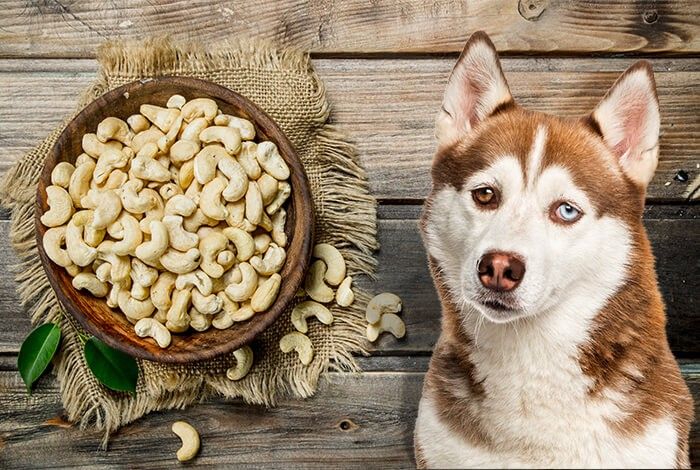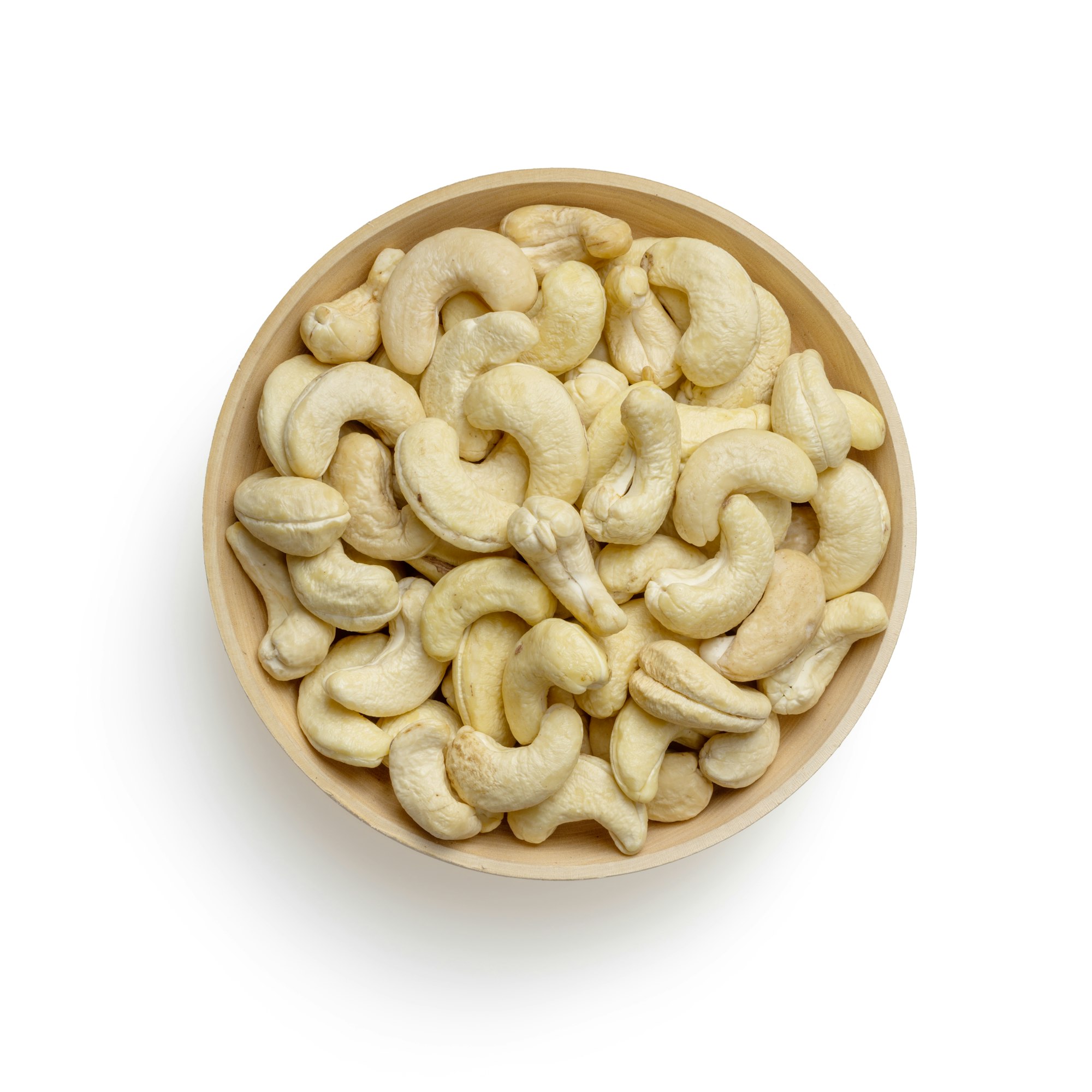As a dog owner, you may have wondered if it's okay to share some of your favorite snacks with your furry companion. Cashews, being delicious and nutritious for humans, might have crossed your mind as a potential treat for your canine friend. But before you toss a cashew to your dog, it's essential to understand whether cashews are safe and beneficial for them.

Understanding Cashews
Cashews are kidney-shaped nuts that grow on cashew trees, primarily found in tropical regions. They are commonly used in various cuisines, offering a rich, buttery taste and a crunchy texture. Cashews are an excellent source of healthy fats, proteins, and essential minerals, making them a popular choice for human consumption. However, what may be suitable for humans may not necessarily be ideal for dogs.
Cashews are packed with essential nutrients that provide numerous health benefits for humans. They contain healthy monounsaturated fats, vitamins such as E, K, and B6, and minerals like copper, phosphorus, zinc, and magnesium. Additionally, cashews are rich in antioxidants that help combat oxidative stress and inflammation.
Potential Benefits of Cashews for Dogs
While cashews can be a tasty treat for dogs, they should be fed in moderation. Some potential benefits include:

Rich in Healthy Fats
Cashews are a good source of healthy fats, including monounsaturated fats, which are beneficial for dogs' skin and coat health. These fats help maintain a shiny and lustrous coat, reducing the risk of dryness and itching.
Good Source of Protein
Proteins are essential for dogs to build and repair tissues, muscles, and organs. Cashews provide a moderate amount of protein, which can be a valuable supplement to a dog's regular diet. However, it's important to remember that dogs primarily need protein from animal sources to meet their dietary requirements.
Contains Essential Minerals
Cashews contain vital minerals like magnesium, copper, and zinc, which play key roles in a dog's overall health. Magnesium supports bone health and muscle function, while copper and zinc are necessary for a strong immune system and efficient wound healing.

Provides Antioxidants
Cashews contain antioxidants that help combat oxidative stress in a dog's body. These antioxidants neutralize harmful free radicals, which can contribute to various health issues, including aging and chronic diseases.
Please remember that while cashews have some potential benefits, they should only be given to dogs in moderation, and their regular diet should consist of balanced and species-appropriate dog food. Always consult with a veterinarian before introducing new foods or treats to your dog's diet, especially if they have any pre-existing health conditions or food allergies.
Potential Risks of Feeding Cashews to Dogs
While cashews offer some benefits, there are also risks associated with feeding them to dogs. Here are the potential risks of feeding cashews to dogs:
High-Fat Content: Cashews are high in fat, and excessive consumption can lead to weight gain and obesity in dogs. Obese dogs are at a higher risk of developing various health issues, including joint problems, heart disease, and diabetes.
Allergic Reactions: Just like humans, dogs can have allergies to certain foods, including nuts like cashews. Allergic reactions may include itching, redness, swelling, hives, or gastrointestinal disturbances such as vomiting and diarrhea. If your happy dog shows any signs of allergies after consuming cashews, discontinue feeding them and consult a veterinarian.
Digestive Issues: Cashews are hard and dense nuts, which can be difficult for some dogs to digest, especially if they are fed whole or in large pieces. Choking hazards and gastrointestinal blockages are possible if dogs consume cashews without proper chewing.
Toxic Additives: Some cashew products marketed for human consumption may contain toxic additives like salt, seasonings, or other flavorings. These additives can be harmful to dogs and should be avoided when sharing cashews with them.
Pancreatitis: In rare cases, high-fat foods like cashews can trigger pancreatitis in dogs. Pancreatitis is an inflammation of the pancreas and can be a serious and painful condition for dogs.
Potential Nutritional Imbalance
Feeding cashews as a regular treat can lead to a nutritional imbalance in a dog's diet. Cashews should not be a substitute for balanced and complete dog food, which provides all the essential nutrients dogs need for their overall health and well-being.

To ensure the safety of your canine companion, it's essential to offer cashews in moderation and as an occasional treat. If you want to provide your dog with additional treats beyond their regular diet, consider dog-friendly alternatives that are safe and healthy. Always consult with a veterinarian before introducing new foods or treats to your dog's diet, especially if they have any pre-existing health conditions or dietary restrictions.
Moderation is Key
Indeed, when it comes to sharing cashews with our canine friends, moderation is the key to ensuring their health and well-being.
While cashews offer some potential benefits, including healthy fats, proteins, and essential minerals, they also come with certain risks, such as a high fat content that could lead to weight gain and obesity. Feeding dogs cashews in excessive amounts may also increase the risk of pancreatitis, a painful and potentially serious condition.
To strike the right balance, cashews should only be given to dogs as an occasional treat and not as a regular part of their diet. Remember, dogs have specific dietary needs that are different from humans, and their primary source of dog nutrition should come from well-balanced and species-appropriate dog food.
As a responsible pet owner, it's essential to pay attention to portion sizes and avoid overindulging your dog with cashews. Instead, use cashews sparingly as a special reward or treat during training sessions or as a way to offer them some variety in their snacks.
Moreover, it's crucial to be mindful of potential allergies and digestive issues. Some dogs may have allergies to nuts, including cashews, and may experience adverse reactions. If you notice any signs of allergy or discomfort after feeding your dog cashews, stop giving them immediately and consult with a veterinarian. How often vet is the crucial factor when introducing cashews diet un-comforts.
Ultimately, while cashews can be a tasty and nutritious treat, they should never replace a balanced and complete diet specially formulated for dogs. Always prioritize your dog's overall health and well-being by making informed choices about their diet and treats.
By following the principle of moderation and being attentive to your dog's individual needs, you can safely share the occasional cashew treat with your furry companion and ensure their happiness and health for years to come.
Other Safe Treat Alternatives
There are plenty of safe and healthy treat alternatives that you can offer your dog to add variety to their snacks. Here are some excellent options:
1. Peanut Butter: Plain, unsalted peanut butter is a favorite among many dogs. It's a great source of protein and healthy fats, and most good family dogs love the taste. Just ensure that the peanut butter does not contain xylitol, a sweetener that is toxic to dogs.
2. Carrots: Carrots are low in calories and high in fiber, making them an excellent crunchy, and nutritious snack for dogs. They are also great for promoting dental health, as the chewing action helps clean their teeth.
3. Blueberries: Blueberries are packed with antioxidants and vitamins, making them a healthy and delicious treat option for dogs. They can be served fresh or frozen, providing a refreshing and nutrient-rich snack.
4. Sweet Potatoes: Cooked sweet potatoes are another fantastic treat option for dogs. They are rich in vitamins, minerals, and dietary fiber, promoting good digestion and overall well-being.
5. Pumpkin: Plain canned pumpkin (not pumpkin pie filling) can be beneficial for dogs, especially for those with digestive issues. Pumpkin is a good source of fiber and can help regulate bowel movements.
6. Green Beans: Cooked green beans are low in calories and high in nutrients, making them a great addition to your dog's diet. They are an ideal treat for weight management and can satisfy your dog's desire for a crunchy snack.
7. Apples (without seeds): Apples are safe for dogs as long as you remove the seeds and core, which can be toxic. Apples are a good source of vitamins and fiber, but remember to feed them in moderation due to their natural sugar content.
8. Watermelon (seedless): Seedless watermelon, with the seeds removed, can be a refreshing treat for dogs, especially during hot weather. Watermelon is hydrating and contains vitamins A, B 6, and C.
9. Cooked Chicken or Turkey: Lean, cooked chicken or turkey can be a tasty and protein-rich treat for dogs. Ensure there are no bones and that it is unseasoned.
10. Cheese: Most dogs enjoy cheese as a treat, but it's essential to feed it in moderation, as some dogs may be lactose intolerant. Opt for low-fat, plain cheese varieties.
Remember that every dog is different, and some may have specific dietary restrictions or allergies. Always introduce new treats gradually and in small quantities to observe how your dog reacts. If you notice any signs of allergies or digestive issues, discontinue the treat and consult with a veterinarian.
Offering a variety of safe and healthy treats can keep your dog happy and excited during training sessions or as a reward for good behavior while ensuring they maintain a well-balanced and nutritious diet.

Conclusion
In conclusion, the question of whether cashews are good for dogs is a matter of balance and caution. While cashews do offer some potential benefits, including healthy fats, proteins, and essential minerals, they also come with certain risks, such as a high fat content that could lead to weight gain and other health issues. Additionally, some dogs may have allergies to nuts, including cashews, making it essential to be mindful of any adverse reactions.
The key to incorporating cashews into your dog's diet, if you choose to do so, is moderation. Cashews should only be given as an occasional treat and not as a regular part of their daily food intake. Their primary source of nutrition should come from well-balanced and species-appropriate dog food.
As responsible pet owners, it's crucial to be aware of your dog's individual dietary needs and any potential health conditions. Always consult with a veterinarian before introducing new foods or treats, including cashews, to ensure they are safe for your furry companion.
Moreover, there are plenty of safe and healthy treat alternatives available that can add variety to your dog's snacks while providing additional nutrients. Peanut butter, carrots, blueberries, sweet potatoes, and other dog-friendly options can serve as tasty and nutritious treats that your dog will enjoy.
By keeping an eye on portion sizes, watching for any signs of allergies or digestive issues, and prioritizing your dog's overall health and well-being, you can make informed decisions about their diet and treats.
Remember, each dog is unique, and what works for one may not work for another. Pay attention to your dog's preferences and responses to different treats, and always choose the best options that align with their specific needs.
In the end, a balanced and loving approach to your dog's diet, coupled with plenty of exercise and affection, will contribute to their happiness and longevity as your loyal and beloved companion.
FAQs (Frequently Asked Questions)
1. Can cashews cause pancreatitis in dogs?
While cashews are not a common cause of pancreatitis in dogs, their high fat content could potentially contribute to this condition, especially if consumed in large quantities. It's crucial to feed cashews to dogs in moderation and to monitor their overall fat intake.
2. Can dogs eat salted cashews?
No, dogs should not consume salted cashews or any nuts seasoned with salt or other additives. Excessive salt can be harmful to dogs and may lead to salt toxicity, which can cause dehydration, vomiting, and other health issues.
3. Are cashews toxic to dogs?
Cashews themselves are not considered toxic to dogs, but they can pose risks due to their high fat content and the potential for allergies or digestive issues. Always offer cashews in plain and unsalted form, and monitor your dog's response to them.
4. How many cashews can I give my dog?
The number of cashews you can give your dog depends on their size, age, and overall health. As a general guideline, a few small pieces as an occasional treat should be sufficient. Remember to consult your veterinarian for personalized advice.
5. What are some alternative dog-friendly treats?
There are many safe and healthy treat alternatives for dogs, including peanut butter, carrots, blueberries, sweet potatoes, pumpkin, cooked chicken or turkey, cheese (in moderation), and seedless watermelon. Always ensure that any treat you offer is free from harmful additives and safe for canine consumption.
Remember that these FAQs are intended to provide general information, but each dog is unique, and their dietary needs may vary. When in doubt, consult with a veterinarian to ensure you are making the best choices for your beloved furry companion's well-being.




